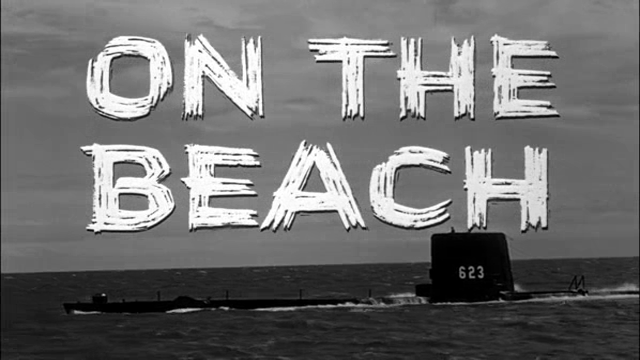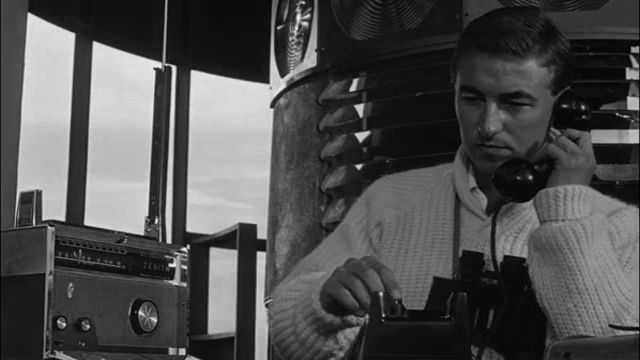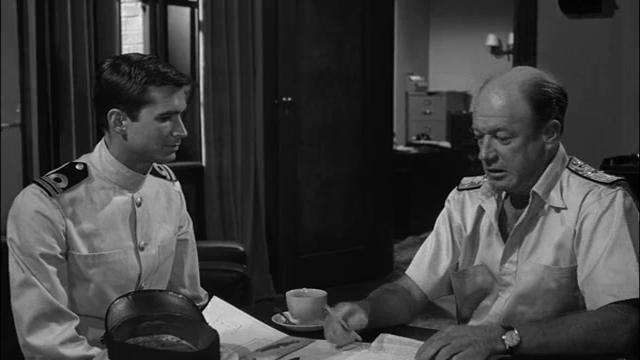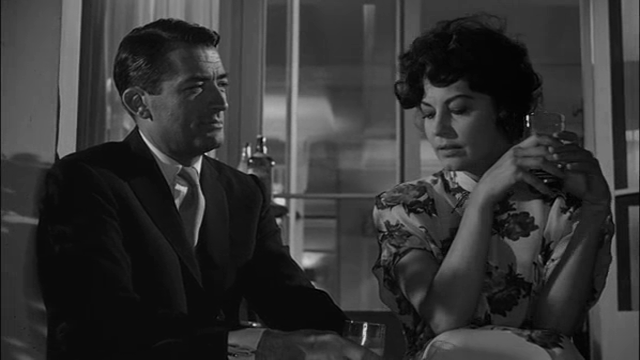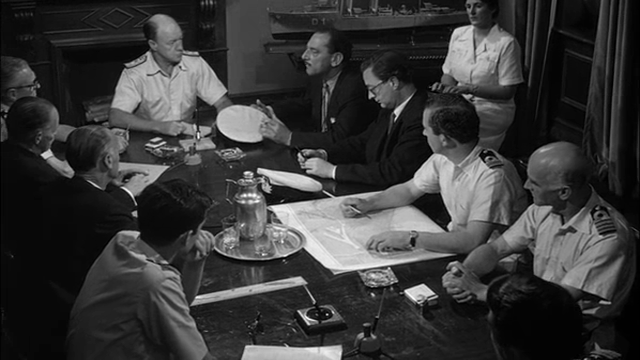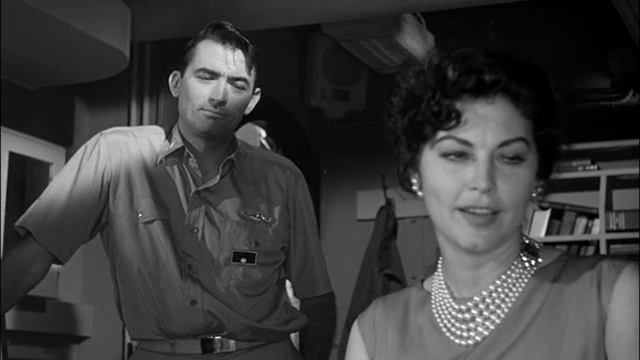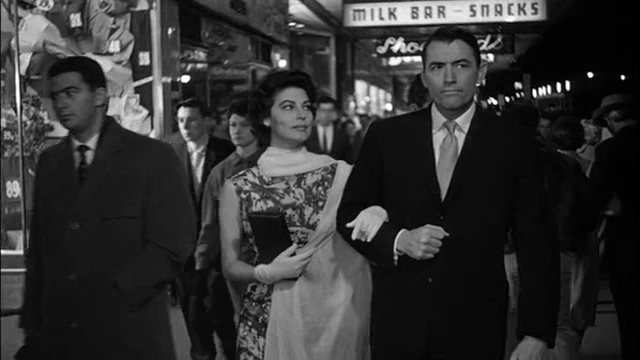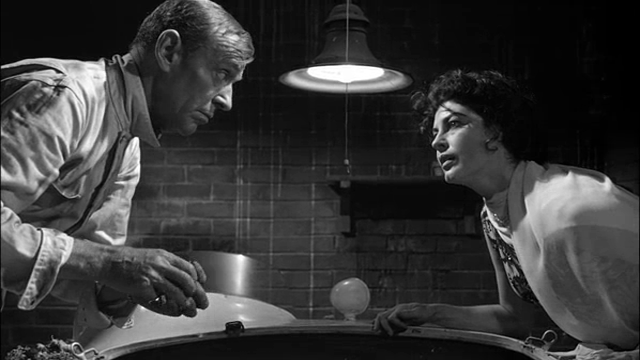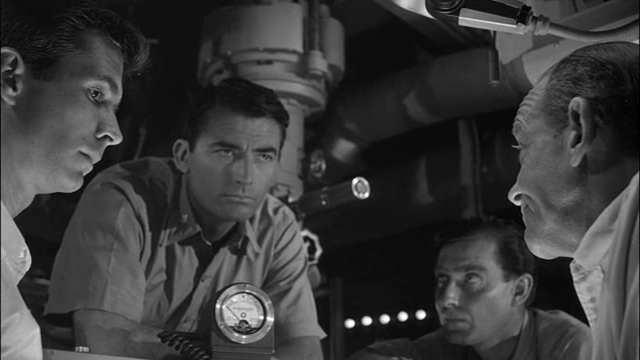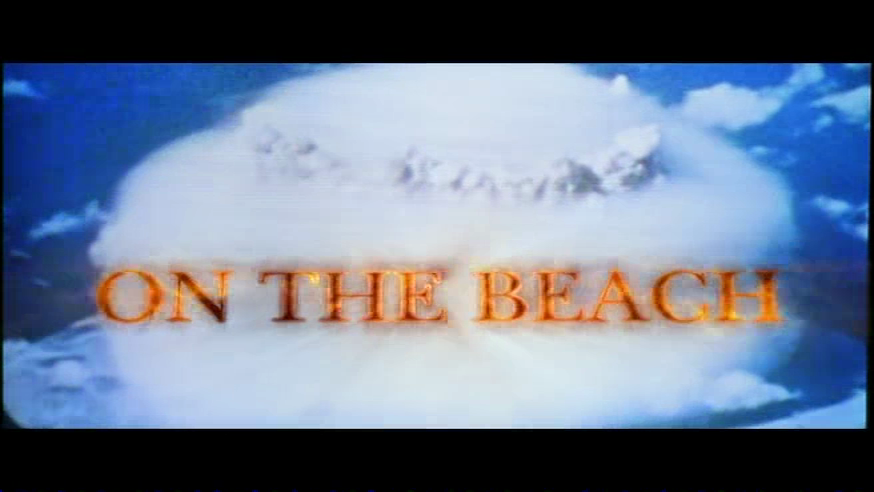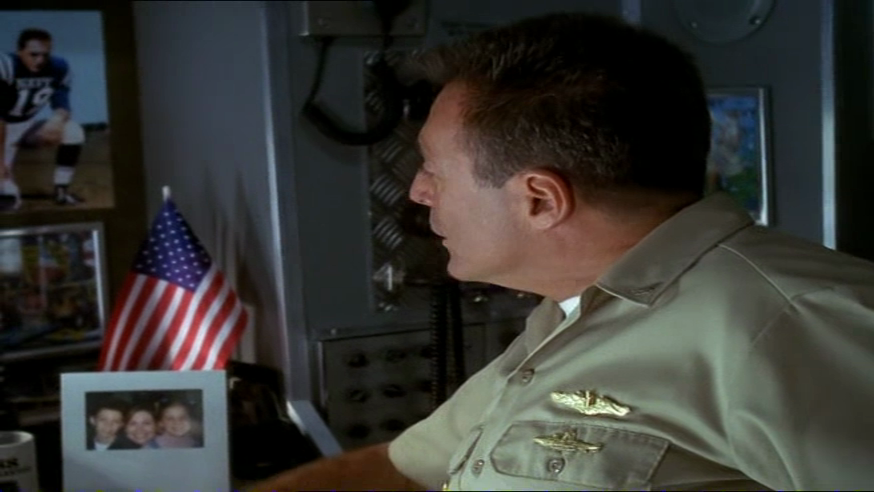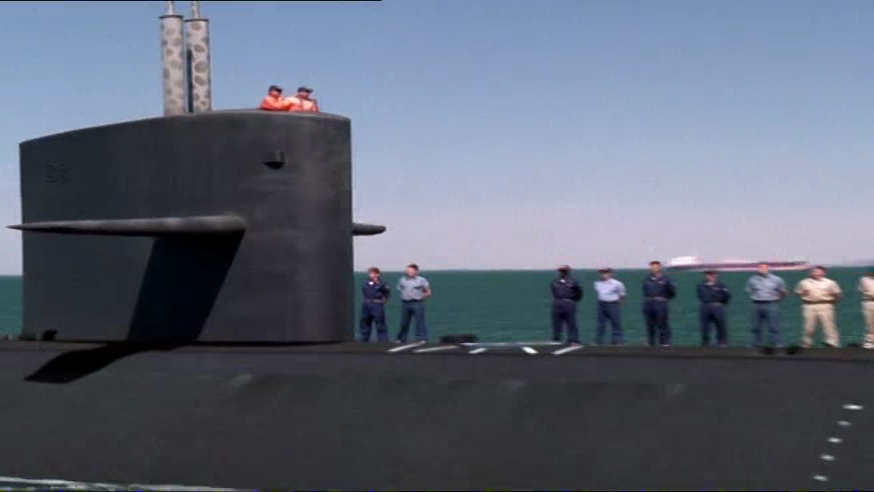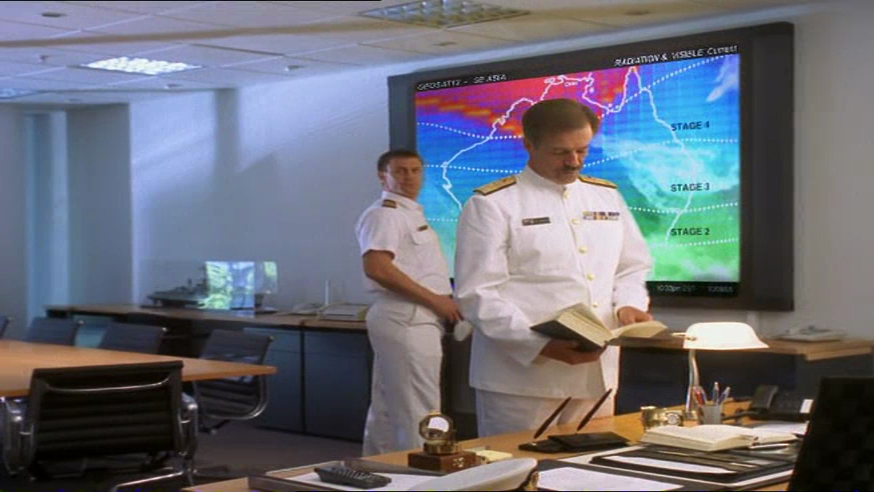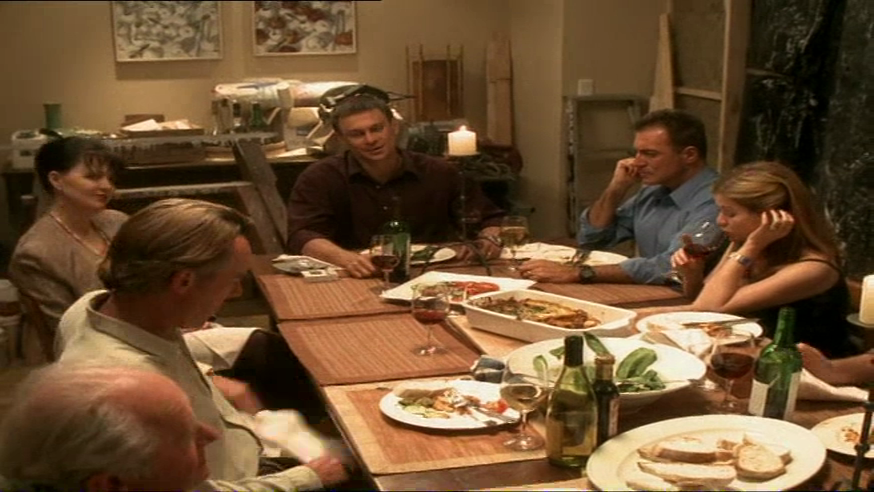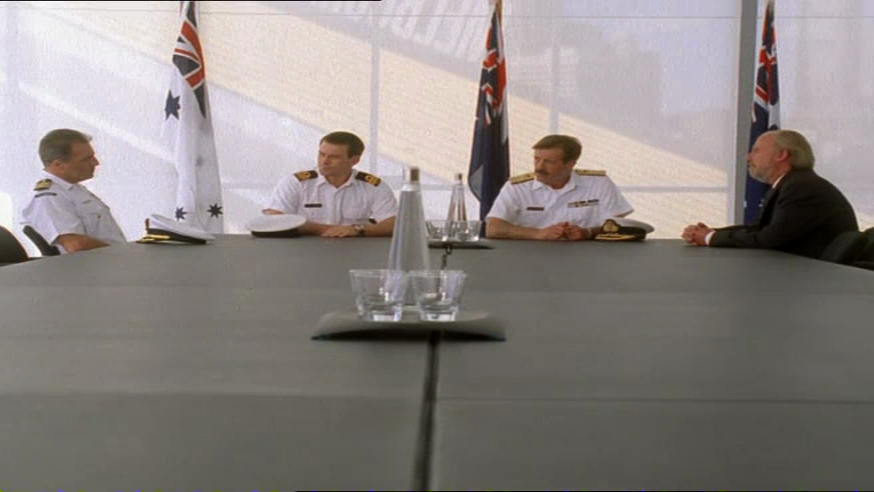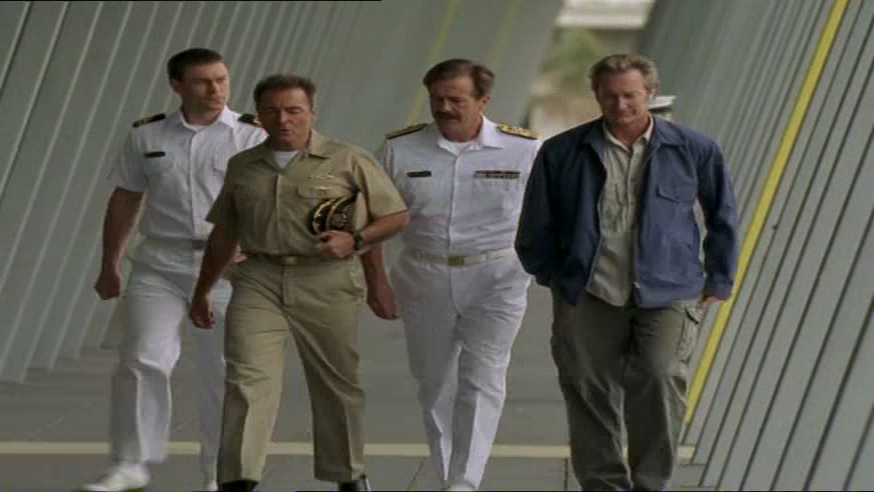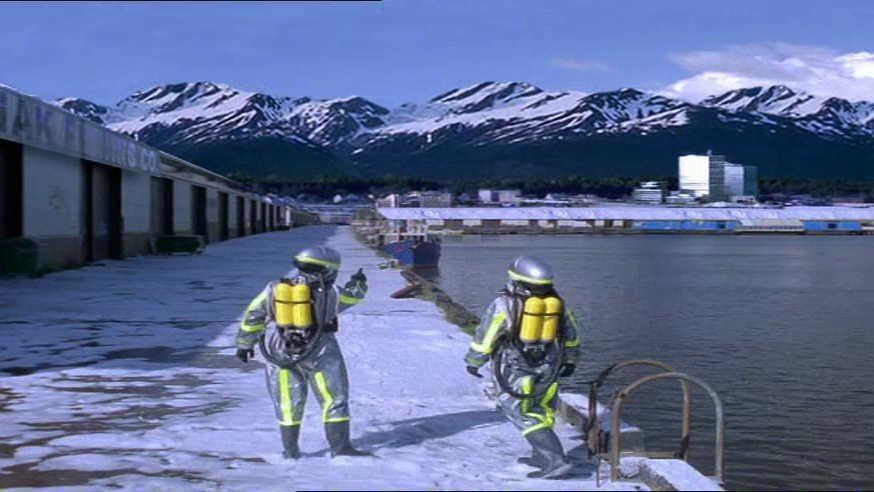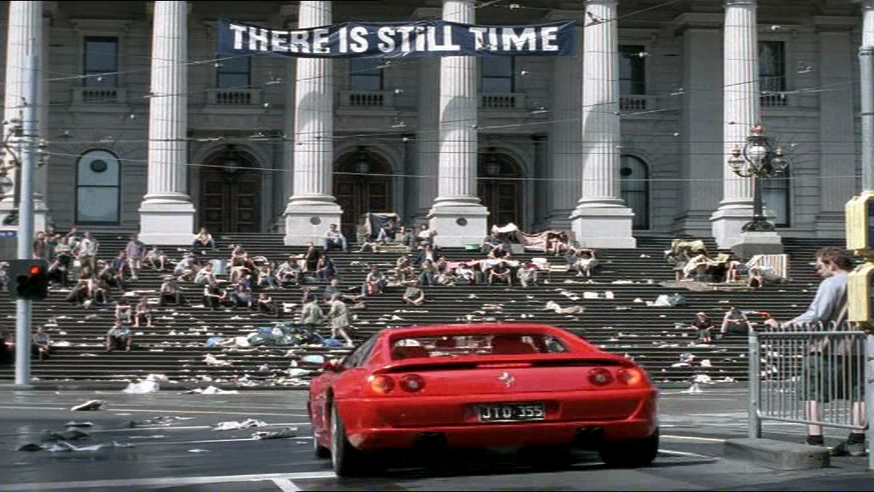-
#344 – On the Beach (1959)
On the Beach (1959)
Film review #344
SYNOPSIS: After a nuclear war renders the northern hemisphere uninhabitable, the U.S. submarine USS Sawfish docks in Australia, where the last of the world’s population have been fleeing. Dwight Towers, the Captain of the submarine, is summoned by Australian naval command to take the submarine back to North America to test a theory that the radiation may have subsided. Peter Holmes, a young officer in the Australian navy, is to join Towers on board, and invites him back to his home to spend time with his family before they head out. The cast eventually have to come to terms with the end of the world in their own ways, as the radiation slowly makes its way southwards…
THOUGHTS/ANALYSIS: On the Beach is a 1959 film about the end of the world. I have previously reviewed the 2000 TV miniseries that is a remake of the film, so I will do some small comparisons between the two, but focus on this version. The film opens with Captain Dwight Towers of the U.S. submarine USS Sawfish docking at an Australian port, in light of the Northern hemisphere being uninhabitable due to the radiation from a nuclear war. The Australian navy command has a new mission for Towers: to return to the northern hemisphere to investigate an incomprehensible more code signal which seems to be being sent from San Francisco, which should be uninhabitable. Navy officer Peter Holmes ia assigned to Towers’ submarine, and he invites Towers to his home to spend time with his family before they head out. The film focuses heavily on the relationship between the characters, and makes the film more of a drama than a post-apocalypse film.
The world that the film envisions five years in the future (set in 1964 from the 1959 production date) is a society that seemingly has carried on like very little has changed, and order still seems to be maintained, unlike the 2000 film, where society has all but collapsed. There’s some effects of the war, such as people using horses in place of cars since there’s no oil, but other than that everyone still seems to be going about their daily businesses, eiether through ignoring the inevitable, or having no idea what to do about it. This is also expressed through the main characters, as each one has a different attitude to the state of the world, such as Peter’s realism, and his wife Mary’s reluctance to talk about or hear anything about how they are all going to die. Dwight’s sheer reluctance to accept that his family was killed in the war and that they will simply be at home when he returns is very well delivered, and the complications it brings up with Moira’s (Mary’s older sister) attempts to get closer to him means that her usual tricks to seduce men, which she has no moral quabble about, make her hesitate with regards to a man who does not actually have a family, but believes he does. Another strong moment is when Peter talks with his wife about the suicide pills that the government will be offering, as he sees it as the only way to avoid a painful death for her and their daughter, and Mary finally has to confront the uncomfortable truth.
Towers and Holmes set sail to San Francisco to investigate the mysterious signal, and thereby shifting the focus of the film from the human drama to the mystery of the signal and the exploration of hope. This puts a number of the film’s threads on hold, and changes the pace a little. The film gets a bit muddled in the middle, and moving the film away from those relationships it has been building up means the viewer has to shift their focus as well. It has it’s moments, but it doesn’t offer as much drama as the opening. This is a long film as well, going for over two hours, and the scenes are very dialogue-intensive and often lacking musical accompaniment. I felt that the film needed to produce more dramatic high and low points in order to take the viewer on an emotional journey, and while the ones it does are well executed, they are inconsistently placed, and some portions of the film are forgotten in a lull of activity. The performances all-round are fairly good, but some of the Australian accents the American actors use are pretty bad. By the time the film ends you see each of the characters having to make tough choices about how they approach the end, and the way the character’s have been built up gives their actions a powerful significance. There’s very little said about the nuclear war; it just seems like it’s a thing that happened and everyone has just accepted and moved on, while I think exploring this in more depth would have helped fill in the more quiet and less emotional scenes of the film. On the Beach pushes some boundaries in terms of exploring the inner traumas of people in the face of certain death, and offers a variety of characters in a well-defined world. It does however, fall short in terms of pacing and enough content to justify its runtime, and the human drama is done in much more well-rounded films, meaning overall it’s a mixed bag.
-
#343 – On The Beach (2000)
On the Beach (2000)
Film review # 343
Director: Russell Mulcahy
SYNOPSIS: After nuclear war renders the northern hemisphere uninhabitable due to lethal radiation, Australia becomes the last place on Earth where life is sustainable. However, the radiation is slowly moving southwards, meaning there is a few months left at most for everyone. Captain Dwight Towers of the USS Charlston, a U.S. submarine that is been beneath the waves to avoid radiation, is called to Australia to take part in a mission to return to the northern hemisphere to test a theory that there may be areas where it is safe to live…
THOUGHTS/ANALYSIS: On the Beach is a 2000 TV miniseries based on the 1959 film of the same name, which in turn was based on a 1957 novel of the same name. It begins with a series of news reports that provide some backstory on what has happened: a nuclear war between the U.S.and China broke out which lead to the northern hemisphere becoming uninhabitable due to the lethal radiation.This has lead to people moving en masse to Australia, which has avoided the radiation thus far. However, the radiation will eventually blow southward in a matter of months, meaning that nowhere will be safe. Captain Dwight Towers, the commander of the U.S. submarine USS Charlston, is docking the sub in Melbourne, having avoided the radiation since their sub has been underwater. Towers is given a new mission to return to the northern hemisphere and check on the radiation levels based on a new – albeit optimistic – theory that the radiation may have subsided. He is joined by Dr. Julian Osborne, a scientist who thinks the whole plan is a waste of time, and Australian navy officer Peter Holmes. Peter invites Dwight to his home before they depart, and the majority of the opening part of the film focuses on establishing the characters of Dwight, Peter and his family, their relationships to one another, and their varying attitude towards the oncoming end of the world. The human drama of Dwight’s loss of his family, the love triangle between Moira (Peter’s sister-in-law), Julian and Dwight, and Peter’s family is a major focus of the film, and it takes a long time to build up and get the viewers familiar with them so you can invest in their emotions and attitudes. It is very slow-paced, and can be difficult to pay attention to at length because of it.
The story offers a small glimmer of hope in the quest to venture to the northern hemisphere and find a place where the radiation has fallen enough so that people can live again. They also find a signal being transmitted from Anchorage, Alaska, so that is where they head. The film builds up this hope as the crew of the submarine slowly make their way to the signal’s origins in hope of finding survivors, but when it arrives all of that hope is dashed when they find lethal radiation there. The Captain and his first officer venture onto the shore in radiation suits to try and find the origin of the signal, but find it is a broadcast that is transmitted automatically by a laptop that is activated by a solar power cell as the sun shines on it every day. This is quite a come down, as this was more or less the last hope for humanity, and the rest of the film is a slow coming to terms with the inevitable death of everyone. Although the pacing is slow, it manages to create a bit of an emotional rollercoaster, as specific scenes raise hopes, and other scenes bring everything crashing down hard. It’s definitely a strength of the film to take the viewer on this ride, and is really down to the time it takes to invest in these characters.
The film does a good job of painting a depressingly fatalistic picture: the crowds look dull and bleak, and what little hope there is at the start of the film is slowly but ultimately crushed. The last portion of the film really goes into full depressing mode, as all hope is exhausted, and everyone has to accept the fact that they are going to die as radiation sickness begins to affect everyone. After building up all the character’s and their relationships, the film uses that investment to really give the film a huge impact. Each character gets to choose how they want to die; and it’s not much of a consolation, but that’s really all there is at this point. Peter and his family use a euthanising drug that has been distributed by the government so they can all die together, Julian drives his sports car around a race track, and deliberately crashes it, and the crew of the USS Charlston set sail back to their home port of San Francisco, knowing they will not make it, but wanting to die at sea. Moira heads to the beach alone after Dwight decided to go with his crew in the submarine, but it turns out he changed his mind at the last minute and the two share some wine overlooking the sea as the end will inevitably set in. Like I say, it’s all very emotional and depressing, and I don’t recommend watching it if you’re feeling down, because it certainly won’t help. It’s an emotionally exhausting experience but I suppose that makes it successful in getting the viewer invested in the characters. The setting of a post-apocalyptic Australia is rendered pretty well, with general order barely holding, and the effects are pretty decent too. It is a TV movie so it’s not going to be overly special, and the acting is sometimes a little off, but nothing too severe. The music adds to the dramatic tone of certain scenes too, and overall the production is well considered and decently executed. I would recommend watching it in three parts like the original miniseries, as the full three-hour experience will be draining and an emotional endurance, but it is perfectly watchable. There’s nothing particularly memorable about the characters themselves, but the way it builds their relationship to one another and the tone of its key scenes still allows the viewer to appreciate their human sensibilities and their varying attitude to the inevitable.
